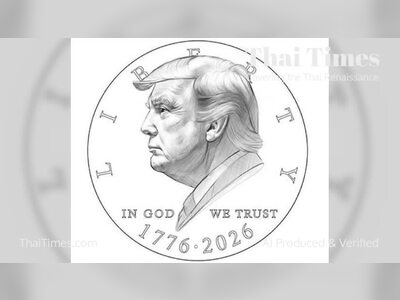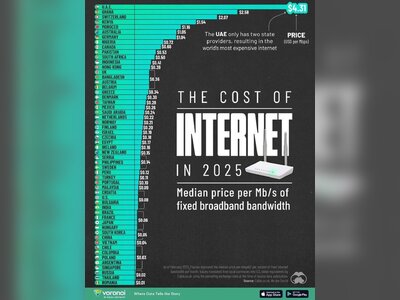Trump Administration Weighs Removing Chinese Companies from U.S. Stock Markets
A possible policy change might impact 286 Chinese firms that have a total market value of $1.1 trillion.
The Trump administration is contemplating the removal of Chinese companies from U.S. stock exchanges, a decision that could influence 286 firms collectively valued at around $1.1 trillion as of March 2025. Treasury Secretary Scott Bessent stated that all possibilities, including delisting, are being explored as part of a broader initiative to tackle trade imbalances and national security issues.
This move comes after a series of legislative and executive measures aimed at increasing oversight of Chinese companies operating in the United States. In December 2020, the "Holding Foreign Companies Accountable Act" was enacted, mandating that foreign firms provide access to their audit records for three consecutive years or risk delisting.
The legislation specifically targets companies that refuse to allow the Public Company Accounting Oversight Board (PCAOB) to review their audit reports, a requirement that has sparked disputes with Chinese firms citing national security concerns.
Moreover, Executive Order 13959, which was signed in November 2020, bans U.S. investments in entities designated as "Communist Chinese military companies" by the Department of Defense.
As a result of this order, the New York Stock Exchange began the delisting process for China Mobile, China Telecom, and China Unicom in January 2021.
The potential delisting of Chinese firms could have significant ramifications for global financial markets.
Chinese companies have increasingly pursued secondary listings in markets like Hong Kong and London to lessen the risks associated with U.S. regulatory actions.
For example, the apparel company Shein has encountered difficulties with its planned U.S. initial public offering due to increased regulatory scrutiny, leading to considerations for other listing options.
These actions are part of a more extensive strategy by the U.S. government focused on addressing national security concerns and promoting fair trade practices.
The administration has also instituted substantial tariffs on Chinese imports, with rates reaching as high as 125%, and has cautioned allied nations against strengthening trade relations with China, deeming it a significant violator in global trade practices.
The ongoing tensions have resulted in heightened volatility in global financial markets, marked by considerable fluctuations in stock and bond markets worldwide.
The situation remains fluid as both the U.S. and China navigate the intricate dynamics of their economic and political relations.
This move comes after a series of legislative and executive measures aimed at increasing oversight of Chinese companies operating in the United States. In December 2020, the "Holding Foreign Companies Accountable Act" was enacted, mandating that foreign firms provide access to their audit records for three consecutive years or risk delisting.
The legislation specifically targets companies that refuse to allow the Public Company Accounting Oversight Board (PCAOB) to review their audit reports, a requirement that has sparked disputes with Chinese firms citing national security concerns.
Moreover, Executive Order 13959, which was signed in November 2020, bans U.S. investments in entities designated as "Communist Chinese military companies" by the Department of Defense.
As a result of this order, the New York Stock Exchange began the delisting process for China Mobile, China Telecom, and China Unicom in January 2021.
The potential delisting of Chinese firms could have significant ramifications for global financial markets.
Chinese companies have increasingly pursued secondary listings in markets like Hong Kong and London to lessen the risks associated with U.S. regulatory actions.
For example, the apparel company Shein has encountered difficulties with its planned U.S. initial public offering due to increased regulatory scrutiny, leading to considerations for other listing options.
These actions are part of a more extensive strategy by the U.S. government focused on addressing national security concerns and promoting fair trade practices.
The administration has also instituted substantial tariffs on Chinese imports, with rates reaching as high as 125%, and has cautioned allied nations against strengthening trade relations with China, deeming it a significant violator in global trade practices.
The ongoing tensions have resulted in heightened volatility in global financial markets, marked by considerable fluctuations in stock and bond markets worldwide.
The situation remains fluid as both the U.S. and China navigate the intricate dynamics of their economic and political relations.











